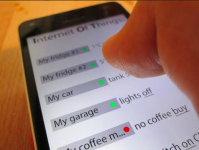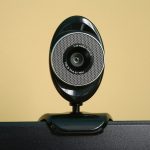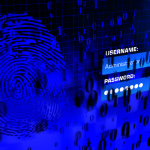Are Your Household Appliances Spying on You?

Baby monitors, your fridge, TV and sport shoes could soon be the focus of new laws amid growing concerns of hacking which can lead to the unauthorised use of images, stalking and fraud offences.
The federal government is considering legislation and a mandatory cyber security rating for web-enabled household and personal products in the wake of growing alarm at how easy they are to hack.
A government spokesperson announced that all internet-connected products may soon have to bear a mandatory Australian cyber security consumer rating, giving consumers information on how safe the products are.
Government promotes self-regulation
As a first step, the government has encouraged industry to formulate its own set of standards, similar to existing energy and health ratings standards, to protect consumers and help them make informed choices about the products they buy.
It says new laws may be passed if manufacturers do not come up with their own system.
Concerns about web-enabled products
The ease with which everyday items can be hacked, tracked and controlled has been a concern for some time.
Those working at the frontline of domestic violence services, for example, say they have witnessed first-hand an alarming rise in the use of technology to stalk and torment victims – through their computers, smartphones, apps, iCloud, and even through smart TVs.
And parents around the world were shocked recently when a news story – from Texas in the US – reported that a bedroom belonging to two 8-year old girls was being streamed live on the internet after a security camera was remotely hacked.
Ironically, the cameras had been installed to provide the parents with a sense of security about their daughters’ safety. There have also been reports in the US of baby monitors being hacked to steal images of children or even to talk to them in their bedrooms.
In Australia also, there have been reports of hackers targeting Wi-Fi enabled baby monitors and children’s online games.
There are also concerns about devices linked to smartphones enabling proxy access to information in phones, thereby allowing hackers to obtain personal information which then be used for fraudulent purposes.
Keeping pace with technology
While many of us are still ‘catching up’ with the rapid pace of technology, the dark side is that we can unwittingly become victims of hacking, stalking and fraud.
These crimes are on the rise in Australia, amid other fears we just don’t have enough cyber security experts to help the government better protect the nation.
There’s no doubt that ongoing education is the key to keeping ahead of technology. Cyber experts advise that we should ‘assume we could be hacked’, and manage devices and passwords to maximise security.
Internet-connected devices are tipped to number 50 billion by the end of this decade – ranging from fridges, microwaves and televisions, through to children’s toys, sports shoes and clothing.
Australia has set up a working group to discuss security of the ‘Internet of Things’ (IoT) which is currently in consultation with big technology companies such as Amazon, Google, Microsoft, Telstra and Optus, to help set voluntary minimum standards and consumer rating for devices in this country.
But as technology becomes more sophisticated, the task of staying ahead of cyber threats is also growing, with experts saying that as well as household appliances, other technology could be under threat as time goes on, such as driverless cars, pacemakers, and automated industrial machinery.
Any standards for Australia would need to cover imported products as well as those produced locally, to ensure that web-enabled devices made overseas are compliant.








